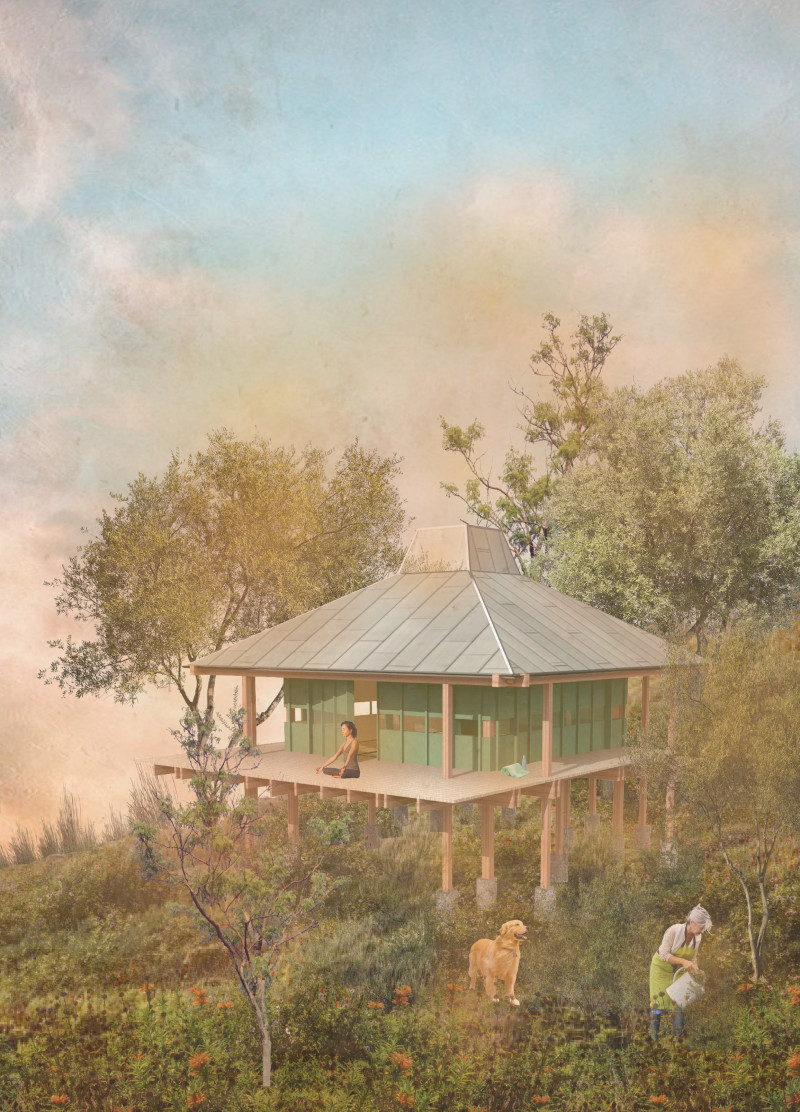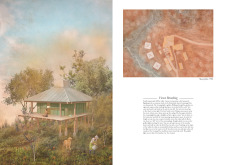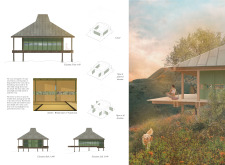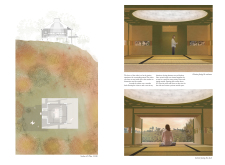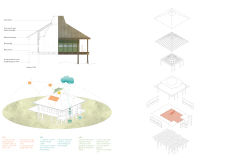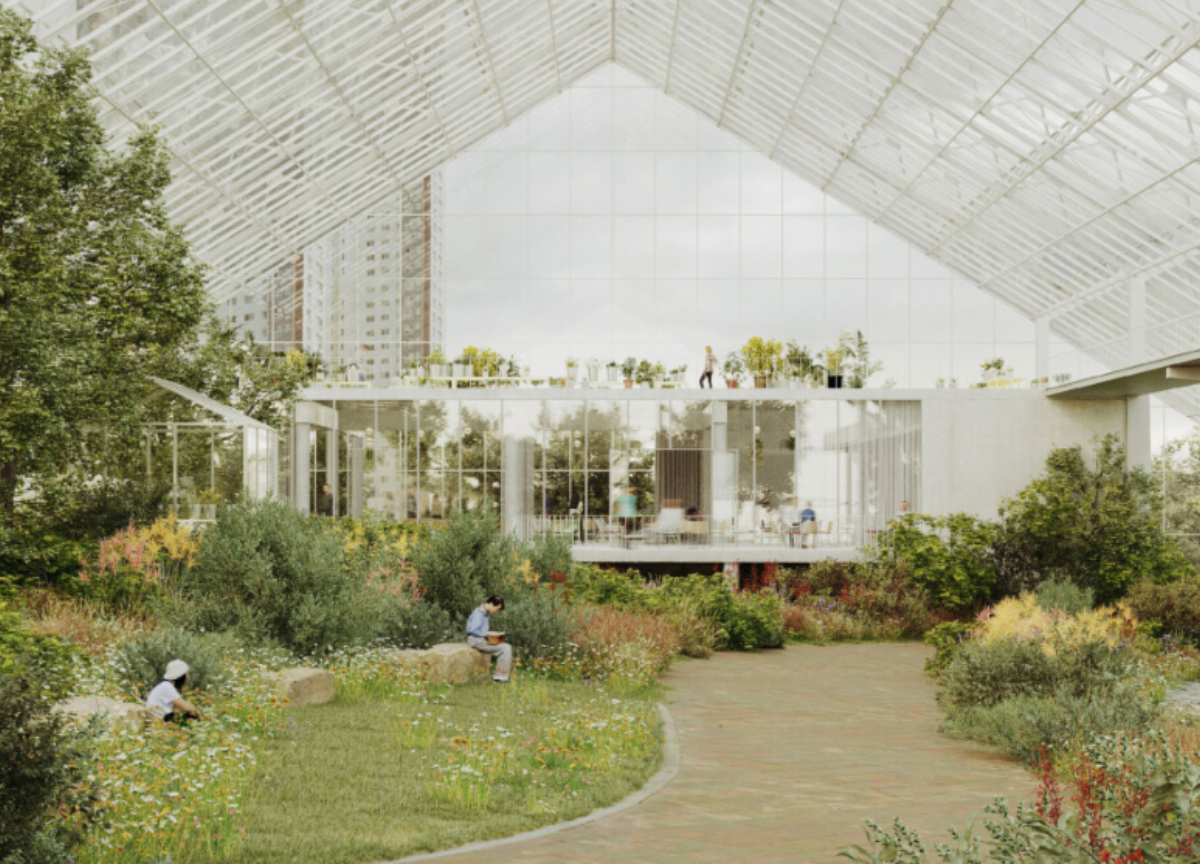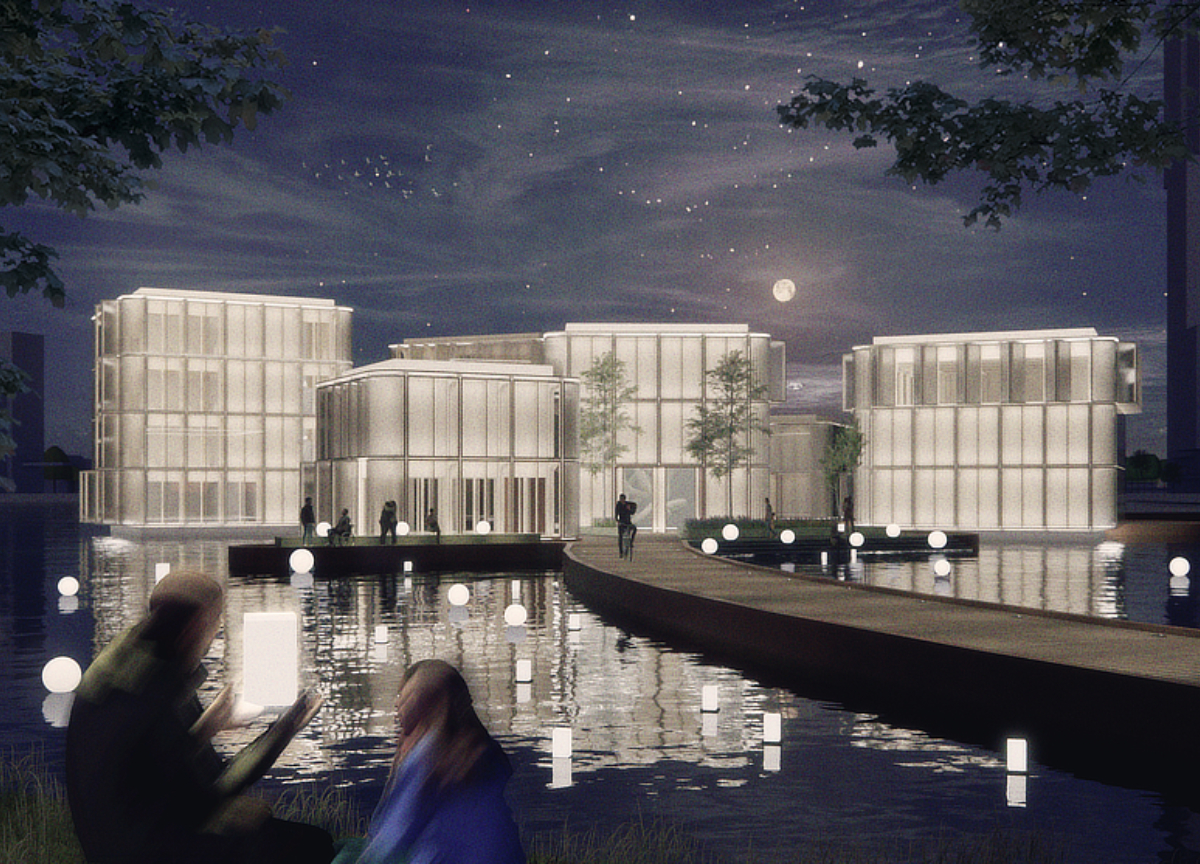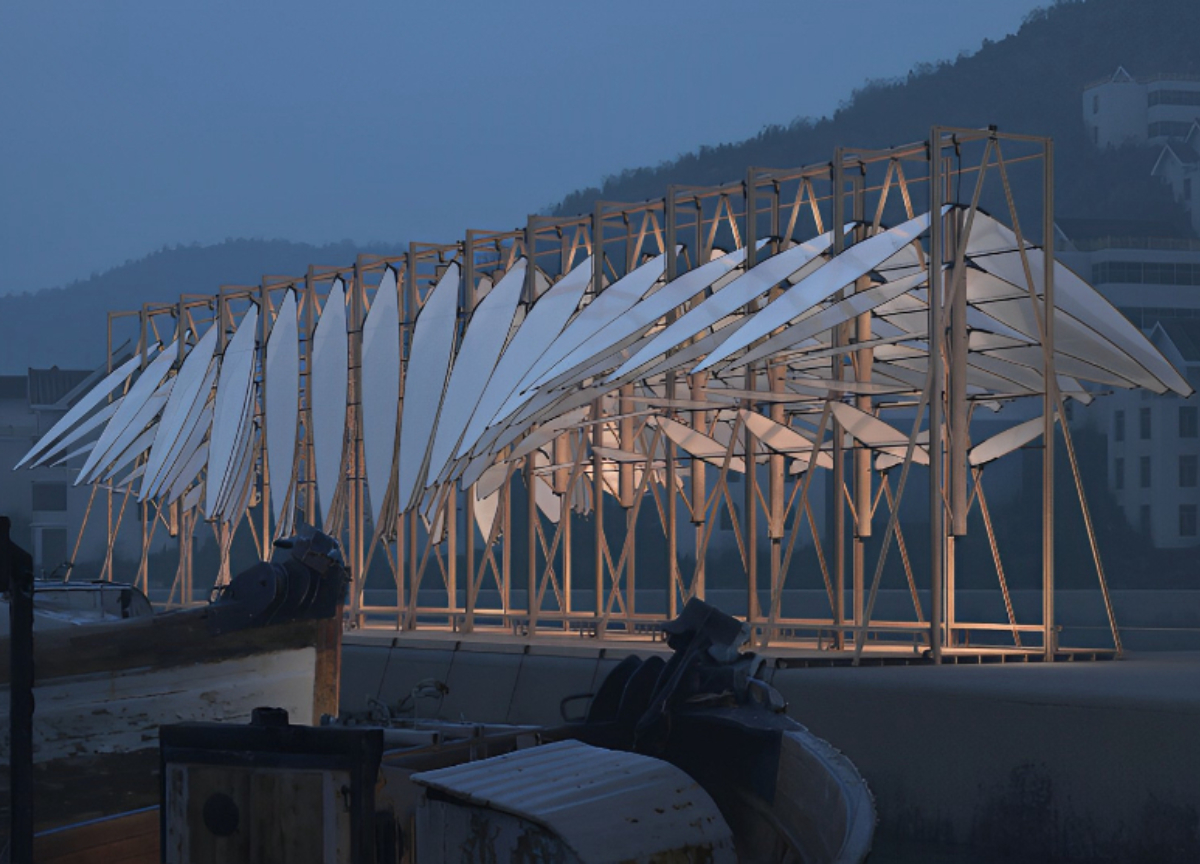5 key facts about this project
The green cabin is located in a calm valley that emphasizes its relationship with nature. It serves as a place for relaxation and reflection, designed to connect visitors with their surroundings. Careful planning ensures minimal disturbance to the landscape, reflecting an approach that values both the environment and user comfort.
Spatial Configuration
Upon entering, the cabin reveals an interior highlighted by an open dome ceiling, which allows natural light to fill the space. This feature creates a bright atmosphere, inviting guests to appreciate the views outside. A narrow window at eye level runs along the walls, providing visual access to the landscape while ensuring privacy. The design focuses on seating areas, which encourage relaxation and contemplation within the space.
Materiality and Aesthetic
Tatami mats cover the floor, adding a traditional touch that complements the overall look and feel of the cabin. The layout allows visitors to open large wooden doors, merging the indoor space with the outdoor deck. This design blurs the lines between inside and outside, promoting a sense of openness and connection with nature. The deck acts as an extension of the cabin, enhancing the surrounding views.
Sustainability Features
A commitment to sustainability is evident through several carefully chosen systems. A solar chimney helps bring natural light into the cabin, keeping the interior bright throughout the day. Rainwater is collected for practical use in handwashing and gardening. The fresh air ventilation system pulls in cooler air from below, creating a comfortable environment without relying on mechanical systems.
Design Details
The outdoor deck is thoughtfully arranged, offering a variety of seating options that accommodate both sun and shade. The layout of the cabins allows for communal interaction while still providing the option for privacy. By opening the wooden doors, visitors can create sheltered outdoor areas for quiet reflection. This attention to detail helps foster a deeper connection to the tranquil landscape surrounding the cabin.


